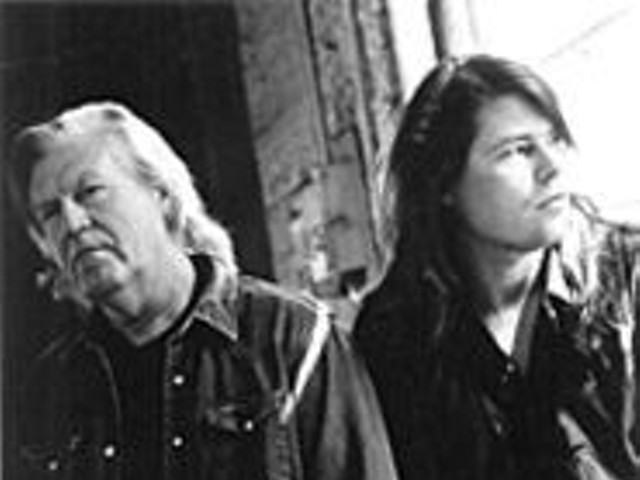Check out Washington on a Friday night, and you might think you're in another city. Hundreds of people gather outside Kaos for their hip-hop night (the club prefers to call it "urban-professional night"); hundreds more party on the sidewalk or in their cars, yelling at passersby and checking out the honeys in line. So what's the big deal? Isn't it a good sign that we finally have people hanging out downtown after dark, just like a real city with an actual nightlife?
Depends on whom you ask. Downtown residents complain about incessant horn-honking. Club owners complain that business has dropped off, that their patrons don't feel safe, that traffic congestion from cruisers is discouraging customers, that a "general air of lawlessness" pervades the district. Although most Kaos critics say the problem stems from faulty crowd control and the 18-and-up door policy (all the other clubs are 21-and-over), race, of course, is an inevitable factor. Almost all the people loitering outside the club are young African-American men, a detail that's bound to make some people uncomfortable.
"I think there are just a lot more black people in the neighborhood than there had been in a long time," says Roxanna Ratossa, a bartender at Tangerine. "A lot of them are underage, and they're probably drinking, and some are kind of belligerent. But there's been a black club down here for years, Tabu, and it's never been a problem." Ratossa maintains that she's not scared, just irritated: "I'm just upset that we're not doing any business. Neither are most of the people I know who work on that street." She also points to a double standard on the part of law enforcement: "There was one [rave] on Washington that went kind of bad, and ever since then, all these promoters are getting persecuted. And then there's all this really bad stuff going on on Washington right now, and no one seems to care about it at all. [The police] went into the clubs and took out glowsticks because they didn't want 'ravers' around, but now there are fights every weekend night. And on the Fourth of July, they were shooting off fireworks at people, and the cops weren't doing anything."
The 4th District commander, Capt. Lawrence O'Toole, agrees that there's a problem; he's been working closely with club owners and neighborhood residents to address it: "Everybody on the block is upset. Kaos would like to try to argue that the other businesses and police don't like black youths, but nothing could be further from the truth. It's all about the age -- people under 21, that's where the problem is. When you have a place like Kaos that caters to 18-year-olds, you're going to bring with that young people who can't afford to pay, young people who don't want to do anything but hang out in the street." O'Toole says he's doing all he can, but there's only so much he can do. "I'll enforce any law you give me, but [club owners] need to pressure city officials to get Kaos to go over-21. That's the obvious answer," he says.
One club owner, who prefers to remain anonymous, has a more draconian solution: "What would really curb the problem is if we no longer had to deal with Kaos at all," he sighs. "They're doing this because it's the only way they can survive; their 21-and-up business was so bad. But I figure if you give them enough rope, they'll hang themselves."
Blake Brokaw, owner of Tangerine and Lo, sympathizes with the dilemma the police face but still feels frustrated. "It's hurt the whole downtown district this summer," he says. "It's still safe -- I can't stress that enough -- it's just the perception.
"I think Capt. O'Toole is trying," Brokaw continues. "We just need to focus, get all the components of the neighborhood together: the police, the businesses, the residents' association, Downtown Now, the mayor's office. Capt. O'Toole can only do what's within his limits. He can't just close them down because they're a pain in the ass, unfortunately."
Not surprisingly, Dharamesh Patel, the owner of Kaos, views things differently. He claims Kaos patrons are generally well behaved and denies that his business practices are responsible for the cruising problem: "Who's to say that 100 percent of the people cruising are my customers? That's absurd. Tabu was the first club to go hip-hop, and they had huge crowds. Since Kaos has been open, we've just been doing the same thing Tabu was, but we're cleaning up the crowd."
According to Patel, he's simply responding to the market. "In February, when we were getting pressure from the city to go 21 and up, we tried it and failed," he says. "If I wouldn't have switched back, I would have lost everything. I respect [the other club owners] very much, what they're doing. But with 22,000 square feet of space and only 150 people on a Friday, I was draining my pockets. I couldn't keep the place open. The law clearly stipulates that customers are allowed to be 18 and up. Some of these club owners, I feel that they folded too easy because of pressure from city police. I just want to be a professional businessman and conduct business to the best of my abilities -- that's all."





